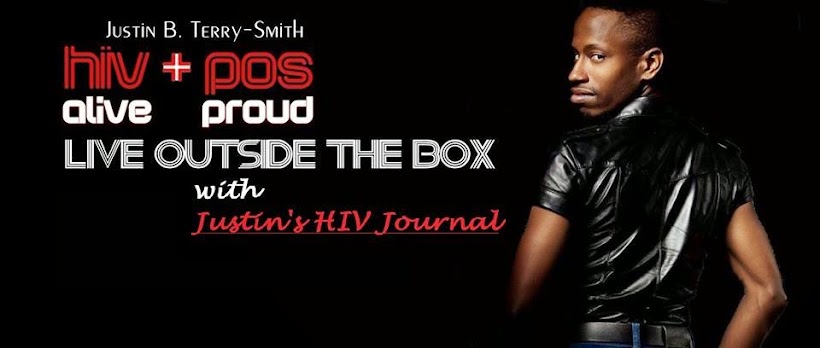
Justin B. Terry-Smith has been involved in LGBTQ and HIV Activism since 1999. He is an Air Force 9/11 Disabled Vet. Raised in Silver Spring, MD, he now lives in Albuequerque, New Meixco with his husband Phil. He writes an HIV/STI Advice Column for A&U Magazine, is a Contributing writer for thebody.com, a Life Coach and an Adjunct Professor. He has earned his Doctorate in Public Health with a concentration in Infectious Disease and his Masters in Clinical Mental Health Counseling.
Sunday, April 10, 2011
Justin's HIV Journal: Love in the time of HIV
People who are HIV positive ask me all the time, “How do I get involved in the fight against HIV?” When I ask them, “Are you open about your HIV status?” they usually answer no--and that is fine.
But since getting diagnosed as HIV positive in 2006, I have made it a priority to be open about my status. When I made this decision, I knew that it was right for me, but I didn't know just how right it would be. Here are four ways that openly acknowledging that I have HIV has worked in my favor:
My Family and I Have Grown Closer
Telling family that you have HIV is never easy, and telling mine was no exception: I grew up in a very religious household--my father was a deacon. In fact, I didn't even get a chance to tell my family myself; an extended-family member told my mother without asking me. My brother then called me, crying and asking if I had AIDS. Since I didn't, I answered, "No." But when he asked if I had HIV, I was honest and said, "Yes." He cried even more, but I told him, "Don't cry for me; be strong with me," and he has been.
Since the word had gotten out, I needed to tell my dad. It was too hard to face him, so I picked up the phone and called. My father had already accepted the fact that I am gay, but now he accepted my diagnosis and told me that he wanted me to take care good of myself and not to hesitate to call him if I needed anything.
Since then, both my mother and my father have been in my corner. They have been the most powerful people in my life, and I am grateful for their supportive presence. My brothers, aunt, uncles and cousins all know of my status and love me regardless. One cousin actually came with me to a speaking engagement, where he videotaped me speaking about HIV to college students.
I Take Better Care of Myself
I started Justin's HIV Journal because I was tired of seeing my friends die off one by one: I wanted to do something to fight HIV/AIDS. But I did not expect my website to take off the way it has. It has benefited other people greatly and at the same time benefited me.
Preparing my blog and video-blog postings has helped me learn more about HIV. What I've learned has caused me to improve my lifestyle choices and try to lead a healthier life; for example, I eat better than before. Being public has also lessened my stress level, since I'm not under pressure to keep any secrets.
I Am Able to Concentrate on What Is Important in Life
Right after I decided to be open about my status, I met Dr. Philip B. Terry at a bar. I was very up-front with him because I didn't want to play any games; I wanted everything to be out in the open. He gave me his number, I called him and we fell in love. Today he is Dr. Philip Terry-Smith, my husband.
Don't get me wrong; I had been rejected before. But as the saying goes, you have to kiss a couple of frogs to get to your prince. My husband says that one of the reasons he fell for me was my honesty.
I Have the Chance to Help Others
My being public has made my friends and family more aware of HIV. But probably the most important benefit has been the opportunity to give back, whether it be to Black people, the LGBT community or whomever. For example, I spoke at George Mason University in Fairfax, Va., on World AIDS Day.
I've been able to educate many people who have recently become HIV positive. The fact that I am open helps them feel more comfortable with themselves and better able to come out of the "HIV closet." I am also able to attract attention to many issues that people with HIV have to deal with--issues like discrimination, stigma, harassment and low self-esteem.
I'm not saying that you should shout your HIV status from the rooftop, even though that is something I have decided to do to benefit everyone infected or affected by HIV. But living offers anyone with HIV the opportunity to become a leader in his or her own right. And living by example can help you guide people into fighting the good fight against HIV.


